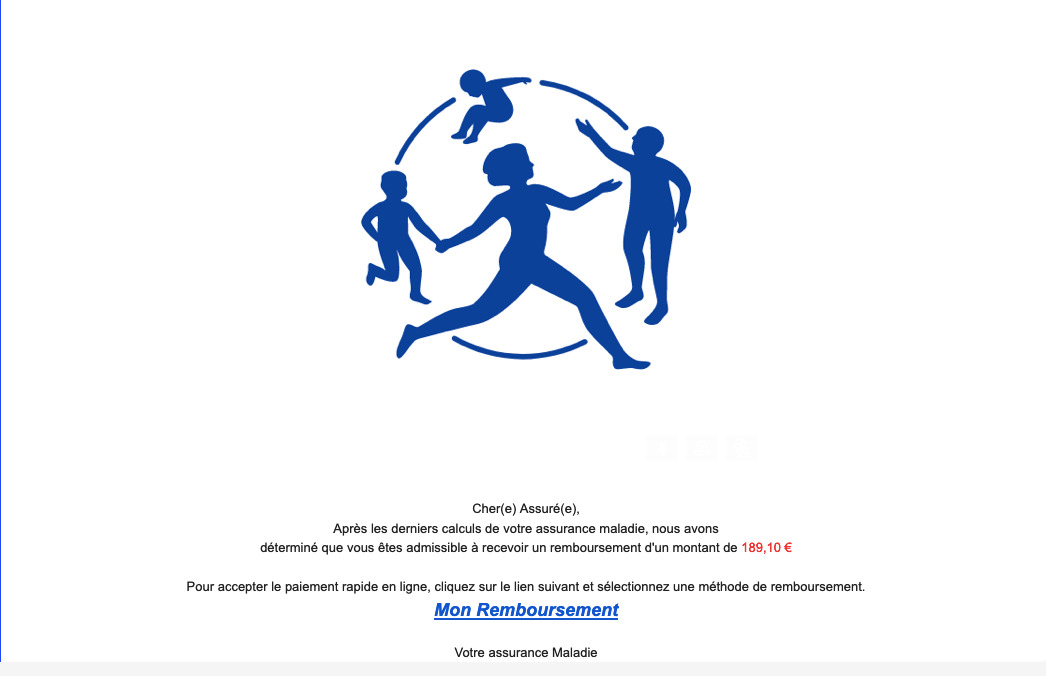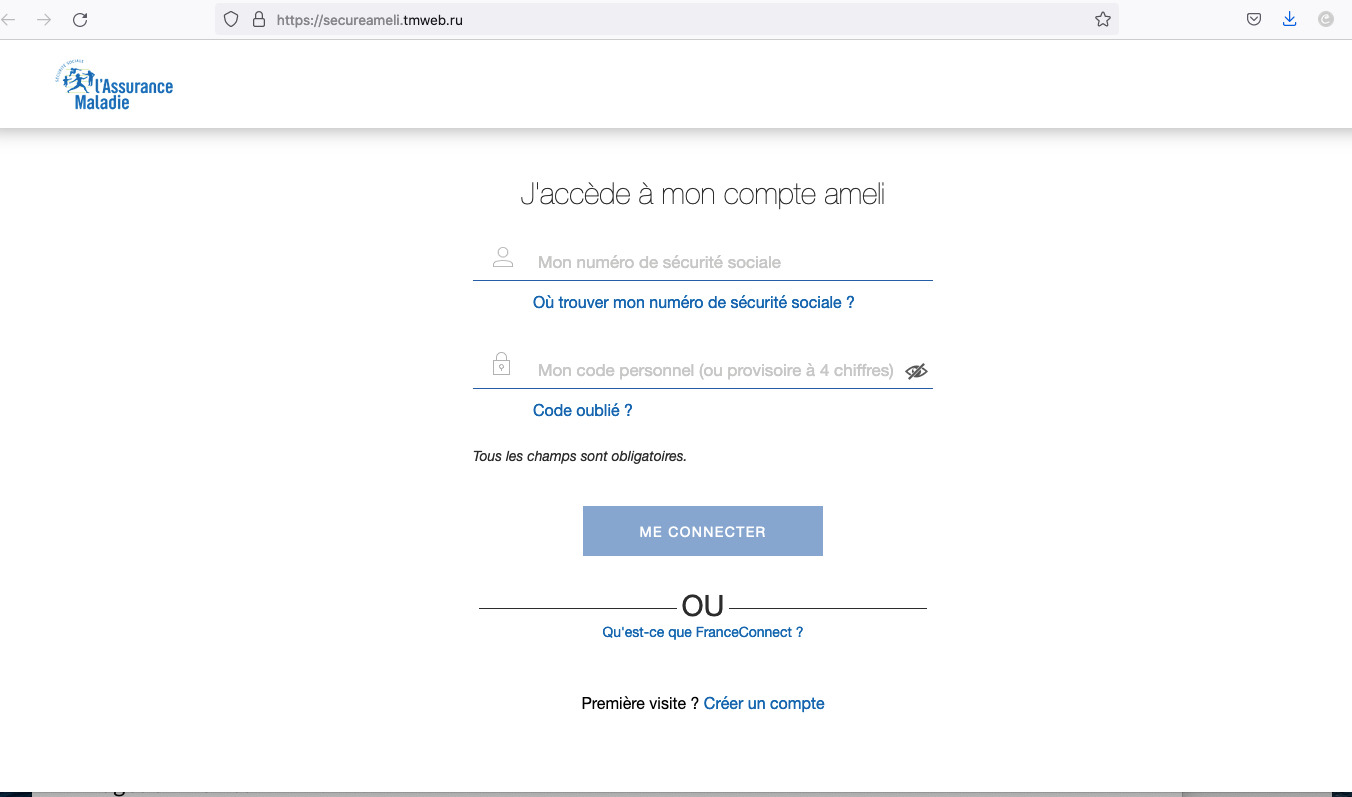Published on
Updated
Reading 2 mins.
in collaboration with
Dr Gérald Kierzek (Medical Director)
Vigilance! A phishing attempt claiming a refund from your Health Insurance is widely distributed by email and SMS this early September, with the aim of making you click and pay. The opportunity to recall some precautionary rules.
“Dear Insured, Following your health insurance’s final calculations, we have determined that you are eligible to receive reimbursement in the amount of €189”.

The message arouses interest, but comes from a phishing attempt, quite well done, it must be admitted. Following the instructions, on the other hand, exposes you to extortion of personal data and intends to extract money from you.
“You have a refund”: this is false
The phishing attempt takes the form of an e-mail presenting a supposedly personalized file number, the Health Insurance logo as well as a message in all sobriety claiming a refund due to you, following a new calculation. You are of course invited to click on a “My refund” link to benefit from it. There, a new page opens, visually showing all the codes of the connection page to your Ameli site: same font, same design, same insert where to enter your personal information such as social security number and personal code. Everything is there, even the link to France Connect, which, for once, leads to an official page… Warning you against a fraudulent imitation of its logo.
This first sign of mistrust is coupled with another detail that does not deceive: the URL address is punctuated by an unusual extension “ru” which does not exist in the official sites. The email is indeed a fraudulent message, detected by the Health Insurance itself, but which continues to flood our mailboxes.

At the same time, a fraudulent SMS campaign is also very active these days, under the pretext of notifying you of the delivery of a new Vitale card or announcing that a reimbursement from Health Insurance is pending.
These text messages encourage you to click on a link that also sends you directly to a questionnaire aimed in particular at collecting your bank or personal details.
How to detect a scam? The signs to know
With particular regard to the communication of the Health Insurance to its policyholders, the Ameli site recalls in its pages some details to detect an official communication of an online scam:
- On passing the mouse over the sender, the e-mail address that appears is never a personal address, but an official address;
- L’Assurance Maladie does not use a file reference in the subject line of the emails it sends;
- No personal data is requested by email (social security number, medical information, bank details, etc.);
- L’Assurance Maladie never asks for reimbursement validation;
- L’Assurance Maladie does not present itself as a customer service;
- The Health Insurance never writes in red in its emails to the insured.
Finally, in the event of established fraud or attempted fraud, you can report the illicit content on the official reporting portal Internet-signalement.gouv.fr.
If it is an SMS, report it on the site 33700.fr or by sending an SMS to 33 700. These services will block the sender of the message.
